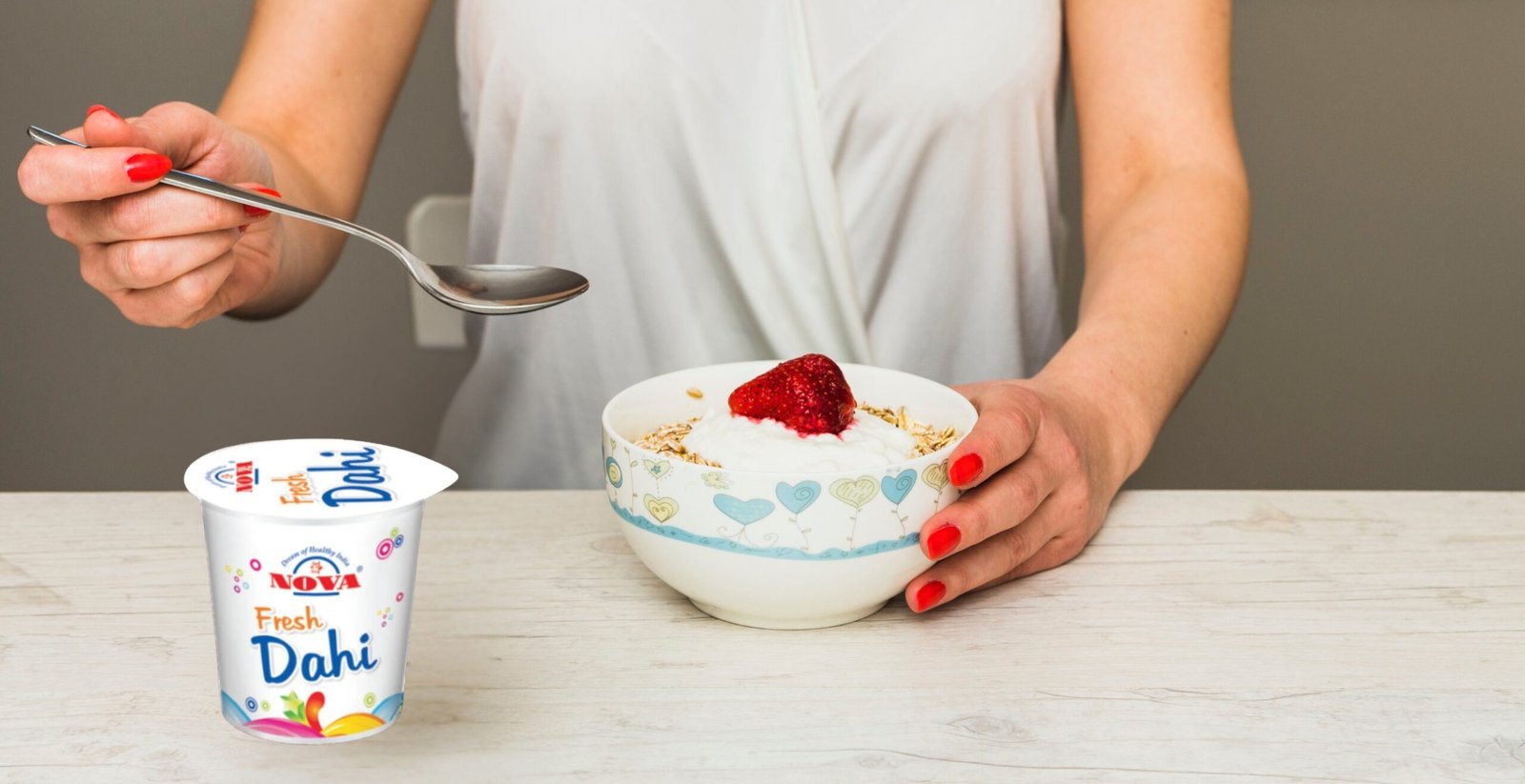

Why Curd Deserves a Spot in Your Daily Diet
Growing up, one of my fondest memories was watching my grandmother carefully place a generous spoonful of thick, homemade curd on my plate during mealtimes. Sometimes it was paired with warm flatbreads, other times with a dash of sugar or salt. Even as a child, I had an inkling that this creamy delight was more than just a tasty side it was something inherently wholesome. Turns out, that simple bowl of curd was brimming with nutrients and beneficial bacteria, making it a powerhouse food that truly earns its place in your everyday meals.
1. A Nutritional Powerhouse
Curd is produced by fermenting milk with live bacteria, often referred to as “good” bacteria or probiotics. These bacteria convert milk sugars into lactic acid, giving curd its tangy taste and unique texture. But there’s more to it than meets the eye:
- Protein: Curd provides high-quality protein that supports muscle repair and overall cell health.
- Calcium: Strong bones and teeth rely on adequate calcium, and curd is a reliable source of this mineral.
- Vitamins & Minerals: Beyond calcium and protein, curd contains essential nutrients like vitamin B12 (vital for nerve function) and phosphorus (important for healthy bones).
- Probiotics: The live cultures in curd maintain a balanced gut microbiome, enhancing digestion, nutrient absorption, and even immunity.
2. Digestive Aid Extraordinaire
A healthy gut is integral to overall well-being, and curd can help keep it that way:
- Ease of Digestion: The fermentation process breaks down much of the lactose in milk, making curd easier to digest, especially for some people who are lactose intolerant.
- Gut Balance: Probiotics in curd help control harmful bacteria, reducing issues like bloating and gas.
- Improved Nutrient Uptake: When your digestive system is balanced, vitamins and minerals from food are absorbed more efficiently.
If you’ve ever eaten a heavy meal and felt sluggish, try ending with a spoonful of plain curd. It’s cool, soothing nature often helps settle an overworked stomach.
3. Weight Management Ally
Curd is a fantastic addition to a weight-conscious diet:
- Protein Satisfaction: High-protein foods, like curd, help keep you feeling full. This means fewer cravings for unhealthy snacks between meals.
- Calorie Control: Low-fat curd options are widely available, giving you a filling, nutritious choice that fits seamlessly into calorie-controlled plans.
- Versatility: Swap calorie-heavy ingredients (like mayonnaise or creamy dressings) for curd-based alternatives. Whisk curd with herbs and spices, and you’ve got a delicious dip or salad dressing that’s far lighter than store-bought versions.
4. Boosting Immunity and Overall Wellness
A large portion of the body’s immune cells reside in the gut, so a balanced digestive system often goes hand-in-hand with a more robust immune response. While curd isn’t a magic bullet, it contributes to an overall healthy diet that can help your body fend off common illnesses. Combine curd with a variety of colorful fruits, vegetables, whole grains, and lean proteins to create a strong foundation for daily well-being.
5. Easy Ways to Incorporate Curd
One of curd’s biggest advantages is its versatility. Here are a few quick suggestions:
- Plain and Simple: Enjoy it straight from the container. A small bowl of curd with a pinch of salt or a drizzle of honey can be a refreshing snack.
- Raita: Blend curd with chopped cucumber, tomatoes, onions, and roasted cumin for a cooling side dish. It pairs wonderfully with spicy curries or rice dishes.
- Smoothies & Lassi: Blend curd with fresh fruit such as bananas, mangoes, or berries for a healthy, creamy drink. Add ice and a touch of sweetener if needed.
- Marinades: Mix curd with spices (like turmeric, chili powder, garlic, or ginger) to marinate vegetables, paneer, or meat. The tanginess tenderizes ingredients and adds depth of flavor.
- Healthy Desserts: For a guilt-free sweet treat, layer curd with fruit and granola, or mix in a dash of sugar and saffron for a simple, aromatic delight.
6. Tips for Storing and Handling Curd
- Refrigerate Promptly: Curd should be refrigerated to keep the probiotic cultures alive.
- Use Clean Utensils: Always use a clean, dry spoon to prevent contamination.
- Check Freshness: Whether store-bought or homemade, aim to consume curd within a few days.
- Freezing Curd: Freezing can affect its texture, making it grainy. If frozen, it’s best used in cooked dishes rather than eaten plain.
In Conclusion
Curd isn’t just a tangy side it’s a nutrient-dense, probiotic-rich food that can easily become a staple in your daily diet. From aiding digestion and immune function to adding a burst of flavor to your meals, curd offers a range of benefits wrapped in a creamy, comforting package. Whether you enjoy it plain, blend it into a smoothie, or use it as a marinade, curd brings both health and deliciousness to the table.
So, the next time you’re thinking about how to elevate your meals, don’t overlook the simplicity of this humble food. Grab a spoon, savor that familiar tang, and let curd work its quiet magic in supporting your body and brightening up your everyday eats.
Frequently Asked Questions (FAQs)
- Is curd the same as yogurt?
They’re very similar. In many places, “yogurt” refers to a product fermented by specific bacterial strains, while “curd” (especially in India) often uses naturally occurring cultures. Both typically offer probiotics, protein, and calcium. - How often can I eat curd?
Most people can enjoy curd daily. However, if you have specific health conditions or dietary restrictions, consulting a healthcare professional is a good idea. - Can people with lactose intolerance consume curd?
Many individuals who are lactose intolerant find that curd is gentler on the stomach than milk, thanks to the fermentation process. Nevertheless, reactions vary, so start with small servings. - What if I’m vegan?
If you’re avoiding dairy entirely, look for plant-based “yogurt” alternatives made from soy, almond, or coconut milk. Ensure they contain live cultures and, ideally, are fortified with calcium. - Does curd cause congestion if eaten at night?
There’s no solid scientific proof linking nighttime curd consumption to colds or congestion. But if you feel discomfort or notice symptoms, try having your curd earlier in the day.



